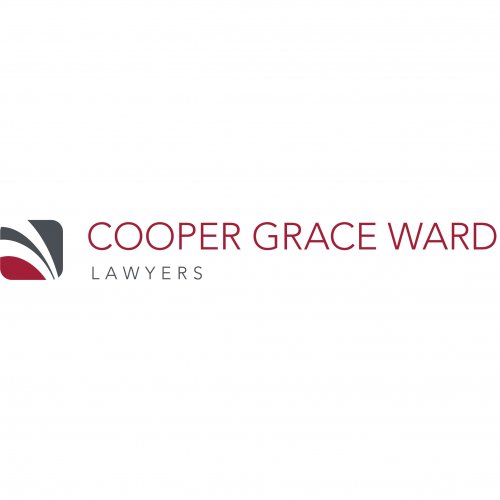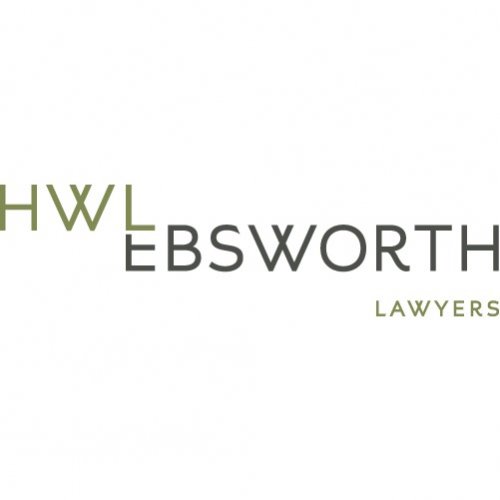Best Structured Finance Lawyers in Brisbane
Share your needs with us, get contacted by law firms.
Free. Takes 2 min.
List of the best lawyers in Brisbane, Australia
About Structured Finance Law in Brisbane, Australia
Structured finance is a complex area of financial law that involves sophisticated and tailored financial instruments, typically utilised for large-scale funding, asset securitisation, and risk management. In Brisbane, as in the rest of Australia, structured finance transactions often involve activities such as mortgage-backed securities, collateralised debt obligations, and other forms of asset-backed financing solutions. The legal framework surrounding these transactions aims to protect both lenders and borrowers while enabling innovative approaches to raising capital and managing financial risk. In Brisbane, structured finance transactions are influenced by both national legislation and local practice, making specialised legal knowledge essential for successful outcomes.
Why You May Need a Lawyer
Structured finance transactions are highly technical and often involve multiple parties, complex documents, and significant financial risk. Common reasons individuals or organisations in Brisbane may require legal assistance in structured finance include:
- Drafting or reviewing transaction documents such as trust deeds, security documents, and offering memoranda
- Ensuring compliance with the Australian Securities and Investments Commission (ASIC) regulations
- Structuring deals to manage tax, regulatory, and commercial risks
- Negotiating terms with financiers, investors, or service providers
- Addressing disputes or defaults related to structured finance products
- Navigating cross-border elements and international implications
- Assisting with disclosures and reporting requirements for public offerings
- Managing risk associated with syndicated lending and securitisation
Given the potential legal complexities and significant financial stakes, involving a qualified structured finance lawyer early in the process can help anticipate risks, ensure legal compliance, and safeguard your interests.
Local Laws Overview
Structured finance law in Brisbane is governed by a combination of federal and Queensland-specific legislation, common law principles, and regulatory guidelines. Key legal aspects that impact structured finance transactions include:
- Corporations Act 2001 (Cth) - This central piece of legislation regulates company operations, securities, and financial products across Australia.
- Australian Securities and Investments Commission (ASIC) - ASIC is the main regulator for financial services and markets, including licensing, conduct requirements, and disclosure standards.
- Personal Property Securities Act 2009 (Cth) - This Act establishes the framework for registering and enforcing security interests over personal property, which is critical in asset-backed financings.
- Banking Act 1959 (Cth) - Covers the regulation of authorised deposit-taking institutions involved in structured finance arrangements.
- Australian Financial Services Licence (AFSL) - Entities dealing in or advising on structured finance products may be required to hold an AFSL.
- State-based laws - Queensland has its own stamp duty, property, and trust laws that can impact the structure of finance transactions conducted in Brisbane.
Legal compliance in structured finance requires careful consideration of these overlapping layers of law. Legal advice can help you interpret how specific statutes and local requirements apply to your situation.
Frequently Asked Questions
What is structured finance?
Structured finance is a set of financial techniques that involve complex transactions such as securitisation, syndicated lending, and derivatives to manage risk or raise capital beyond traditional lending methods.
Who regulates structured finance activities in Brisbane?
Structured finance is chiefly regulated by ASIC, which oversees companies and financial services under national law. The Australian Prudential Regulation Authority (APRA) and the Reserve Bank of Australia may also have roles in specific contexts.
Do I need an Australian Financial Services Licence for structured finance?
If your activities involve advising on, dealing in, or managing structured finance products as a business, you may need an AFSL. Specific exemptions and requirements apply, so legal guidance is recommended.
What are the common structured finance products used in Australia?
Popular structured finance products include mortgage-backed securities, asset-backed securities, collateralised loan obligations, and other types of receivables financing.
How does the Personal Property Securities Act impact structured finance?
This Act establishes registration and priority for security interests over personal property, which is a key legal protection for lenders in asset-backed transactions.
Are there specific stamp duty implications in Queensland for structured finance transactions?
Yes, certain transfers, transfers of trust property, or other transactions may attract Queensland stamp duty. It is important to understand local stamp duty requirements during deal structuring.
Can structured finance transactions involve international parties?
Yes, many structured finance deals have cross-border elements. Australian law will apply to any local assets or operations, but foreign law considerations may also be relevant.
What are the risks involved in structured finance?
Risks include legal compliance, documentation errors, credit risk, counterparty risk, and regulatory enforcement. Legal advice helps manage and mitigate these risks.
How should disputes in structured finance transactions be handled?
Disputes are often resolved through negotiation, mediation, or litigation. Structured finance documents typically specify procedures and jurisdiction for dispute resolution.
When should I involve a lawyer in a structured finance transaction?
Engage a lawyer as early as possible, ideally during the planning and structuring stages. Early involvement ensures proper risk assessment, compliance, and documentation.
Additional Resources
Several resources and organisations can help you better understand or seek assistance with structured finance matters in Brisbane:
- Australian Securities and Investments Commission (ASIC) - Regulator of companies and financial services
- Australian Prudential Regulation Authority (APRA) - Oversees the financial health of lenders and other financial institutions
- Queensland Law Society - Provides lawyer referrals and legal guidance in Queensland
- The Law Council of Australia - National body for the legal profession, including areas of financial law
- Australian Financial Complaints Authority (AFCA) - Dispute resolution for financial services customers
- Business Queensland - State government resource on regulatory requirements for Queensland businesses
Next Steps
If you require legal assistance for structured finance in Brisbane, consider the following steps:
- Identify the specifics of your finance transaction and what you want to achieve
- Compile all relevant documents and information related to your financial arrangements
- Contact a lawyer who specialises in structured finance or commercial law in Brisbane
- Discuss your goals and concerns openly during your initial consultation
- Follow your lawyer's advice regarding compliance, structuring, documentation, and risk management
- If a dispute arises, ensure you act quickly to protect your rights and interests
By taking these proactive steps and seeking specialised legal support, you can navigate the complexities of structured finance in Brisbane with confidence and peace of mind.
Lawzana helps you find the best lawyers and law firms in Brisbane through a curated and pre-screened list of qualified legal professionals. Our platform offers rankings and detailed profiles of attorneys and law firms, allowing you to compare based on practice areas, including Structured Finance, experience, and client feedback.
Each profile includes a description of the firm's areas of practice, client reviews, team members and partners, year of establishment, spoken languages, office locations, contact information, social media presence, and any published articles or resources. Most firms on our platform speak English and are experienced in both local and international legal matters.
Get a quote from top-rated law firms in Brisbane, Australia — quickly, securely, and without unnecessary hassle.
Disclaimer:
The information provided on this page is for general informational purposes only and does not constitute legal advice. While we strive to ensure the accuracy and relevance of the content, legal information may change over time, and interpretations of the law can vary. You should always consult with a qualified legal professional for advice specific to your situation.
We disclaim all liability for actions taken or not taken based on the content of this page. If you believe any information is incorrect or outdated, please contact us, and we will review and update it where appropriate.















